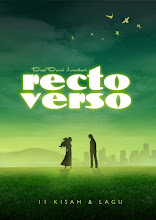Is it a good
time to be a writer in Indonesia?
It is. Many things still need to be done in terms of
our book industry ecosystem, but looking back on how things were in the
past—let’s say, compared to 2001when I published my first book—the situation is
much better now. We now have prosperous authors who can truly rely on writing
as their main profession. We have more book shops, more publishers, more online
libraries, more literary festivals, more platforms to promote our works.
Literary power and importance are something that public and government are more
aware of.
Indonesian
literature is not very well known in the English-speaking world. Why do you
think that is? Do you think that is changing?
I think there hasn’t been a real roadmap and priority
to use literary as our nation’s ambassador to the world. All this time, we had worked
a lot more on our tourism. Literature was below on the list compared to
culinary, fashion, and goods. That also reflects on the dwarf size of our book
industry in the Indonesia’s creative economy. Translation is an art that cannot
be rushed. And once a translation is done, you still need many more efforts
just to catch the attention from the international readers and publishers. You
don’t need to translate a dish, everything speaks for itself. But, in
literature, language is the bridge, and we didn’t have enough translators nor
did we have an exact plan on how to support the growth and quality of our
writers and translators. But, I’m optimist that a change is in the making. Ever
since 2015 when Indonesia became the Guest of Honour in Frankfurt Book Fair, I
felt our book industry had a jolt of fresh spirit. The echo still continues to
London Book Fair. In the past four years, I was involved and invited to speak
to the ministers on at least three big book-related discourses: royalty tax,
book tax, and book piracy. I even had a chance to voice out these concerns
directly to the president. It’s something that was unthinkable before. Of
course, the government’s and the book committee’s effort are not immune to
criticism. But, nobody can deny that there’s a change going on.
You were a
very successful singer-songwriter – what prompted you to move into writing
fiction?
I always loved story telling since I was small. I
attempted to write my first novel when I was 9 years old. I sent short stories
to magazines when I was teenager. Of course, not all of those attempts were
successful, most of them actually failed, but I couldn’t stop writing. During
my singing career, I used my savings to buy a laptop. It was an unusual for a
college student at that time to own a laptop. I took my laptop everywhere so I
could write in between gigs. I remembered when I was nine years old, I this
fantasy that someday I will see my book sold in a book store. So, when I
finished my Supernova manuscript in September 2000, I thought “this is it. This
will be my first book.” I finally self-publish my book in 2001 to celebrate my
25th birthday. I didn’t care if it sells or not, I didn’t even know
how to sell books, I just wanted to fulfil my dream. It turned out to be a huge
success. 7.000 copies sold in two weeks. It was beyond the best-selling
standard in Indonesia at that time. And since Supernova was designed to be a
series, I continued writing the instalments year after year. Writing then
slowly took over my career. I didn’t have much time to focus on my music
anymore. But, since I have been doing my music career for over than ten years
already, I didn’t miss it that much. I enjoyed writing a lot more because it’s
more solitary, less fuss, and less need for make-up, hairdos, and high
heels.
What is the
first book you would like to recommend? Why?
Suddenly The
Night, a poetry book from a prominent Indonesian poet, Sapardi Djoko Damono.
Sapardi’s poems was very influential in my early introduction to literature. It
taught a lot me about perusing nature as a source of metaphors.
What is the
second book you would like to recommend? Why?
Saman by Ayu Utami. The
book came out at the right timing, right after the collapse of the New Order
regime. The story broke many barriers of various taboos and sensitive topics,
including the rise of women authors. To me, Saman
was a mark of a new era in literature.
What is the
third book you would like to recommend? Why?
Man Tiger by Eka Kurniawan. It
depicts familiar facets of Indonesia, and yet those facets can be totally
unique for the international audience. Eka’s writing has a distinct, masculine
voice. I admire his seriousness in crafting his story.
What is the
fourth book you would like to recommend? Why?
Raden Mandasia
by Yusi
Avianto Pareanom. With ancient Indonesia as its setting, fueled with Yusi’s explosive—verging
to chaotic, unapologetic, humorous style of writing, I’m interested to see if
this book would get translated. I think Raden
Mandasia will be an interesting and refreshing window to peek into the
richness of Indonesian literature.
What is the
fifth book you would like to recommend? Why?
Kill the Radio by Dorothea Rosa Herliany. She’s one
of the most prominent Indonesian female poets. I like the way Harry Aveling,
the translator of this book, worked with Dorothea’s original poems. There was a
debate about this. Some say Aveling took it too far, but some say what Aveling
did was a “transliteration”. Instead of merely translating, Harry was giving
another breath into Dorothea’s poems. And, I enjoy the result.
















